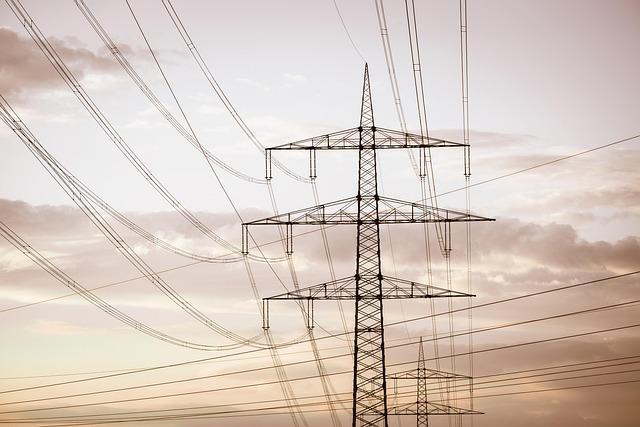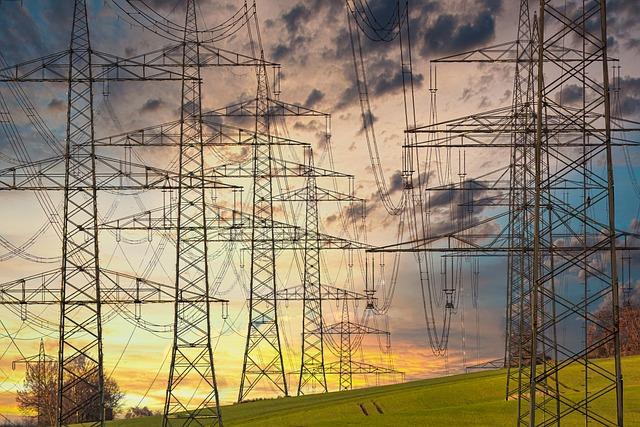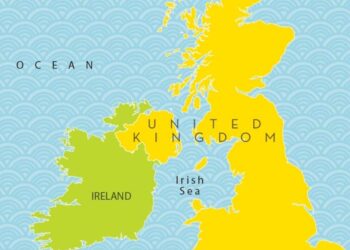In a important step towards strengthening energy collaboration, the European Union and Switzerland have finalized an electricity agreement that promises to enhance cross-border electricity trade and bolster energy security within the region. This landmark agreement, facilitated by legal experts at Taylor Wessing, underscores the importance of cooperative frameworks in addressing the challenges posed by climate change and the transition to renewable energy sources. As both entities seek to navigate the complexities of energy demands and sustainability goals, this pact not only illustrates a commitment to shared infrastructure but also highlights the critical role that legal expertise plays in international energy agreements. In this article, we examine the intricacies of the agreement, its potential impact on energy markets, and the broader implications for EU-Swiss relations in the evolving energy landscape.
Impact of the Electricity Agreement on EU-Switzerland Energy Markets
The recently finalized Electricity Agreement between the EU and Switzerland is set to reshape energy dynamics in the region significantly. By establishing a synchronized framework for electricity exchange, it opens up avenues for increased energy security, greater efficiency, and enhanced integration of renewable energy sources. Key benefits of this agreement include:
- Improved Energy Supply Stability: Enhanced interconnections will allow mutual support during peak demand periods, reducing overall risks associated with energy shortages.
- Facilitated Cross-Border Trade: Streamlined processes for trading electricity between EU member states and Switzerland will likely lead to lower prices and more competitive markets.
- Increased Renewable Integration: The agreement promotes a shared commitment to boost renewable energy usage, facilitating access to hydroelectric power from Switzerland and solar energy sources from the EU.
Furthermore,the agreement lays the groundwork for a more coordinated regulatory approach to energy markets.By aligning policies and standards, both parties can work towards minimizing market distortions and fostering a level playing field. This alignment is essential for addressing issues such as:
- investment Certainty: Investors can feel more secure with a unified regulatory framework, encouraging further investment in renewable projects.
- Technological Collaboration: Joint ventures and knowledge-sharing initiatives between EU and Swiss companies can accelerate innovation in energy technologies.
- Environmental goals: A common approach will help streamline efforts to meet both the EU’s and Switzerland’s climate targets, contributing to a greener future.
| Aspect | Before Agreement | After agreement |
|---|---|---|
| electricity Trade Volume | Limited | Increased |
| Interconnection Capacity | Moderate | Enhanced |
| Renewable Energy Utilization | Fragmented | Coordinated |

Key Provisions of the EU-Switzerland Electricity Agreement
The EU-Switzerland electricity Agreement encompasses several key provisions aimed at fostering cooperation and enhancing the stability of electricity markets between the two entities. Central to the agreement is the establishment of a framework for cross-border electricity exchanges, which is designed to facilitate seamless transactions and ensure energy security. The agreement includes provisions for harmonized technical standards, which will enable both parties to improve infrastructure interoperability and maintain grid reliability. Additionally, ther is an emphasis on collaborative efforts in sustainability and renewable energy, aiming to align policies that support green energy transition goals.
Moreover, the agreement addresses regulatory cooperation, allowing both the EU and Switzerland to share best practices and experiences in the electricity sector. This cooperation is expected to lead to more efficient market operations and to enhance consumer protection measures. Key elements also focus on research and innovation, with joint initiatives planned to promote technological advancements within the electricity sector. To visualize these provisions, the following table summarizes the major components:
| Provision | Description |
|---|---|
| Cross-Border Electricity Exchange | Facilitates seamless transactions and enhances energy security. |
| Harmonized Technical Standards | Improves infrastructure interoperability and grid reliability. |
| Sustainability and Renewable Energy | Aligns policies for a green energy transition. |
| Regulatory Cooperation | Enhances market efficiency and consumer protection. |
| Research and Innovation | Promotes technological advancements in the electricity sector. |

Legal and Regulatory Implications for Energy Stakeholders
The recent agreement on electricity cooperation between the EU and Switzerland introduces significant legal and regulatory frameworks that will reshape the energy landscape for stakeholders on both sides. With the aim of ensuring stable electricity flows,the deal will necessitate compliance with new guidelines and standards that govern cross-border energy trading. Stakeholders, including utilities and energy producers, must adapt to these regulations to avoid potential penalties and engage successfully in the market. Moreover, alignment with EU energy policies is crucial, as this will facilitate easier access to EU markets and promote investments in renewable energy projects.
Stakeholders should be aware of several key implications stemming from this agreement:
- Licensing Requirements: Energy providers may need to acquire specific licenses to operate under the new regulatory regime.
- Market Access: Easier access to the EU market comes with transparency obligations and adherence to EU pricing mechanisms.
- Renewable Energy Targets: Entities will face pressure to meet stricter sustainability targets, influencing investment decisions.
- Dispute Resolution Mechanisms: New processes for resolving cross-border disputes may require stakeholders to familiarize themselves with international legal standards.
| Aspect | Implication |
|---|---|
| Compliance | Must align with EU regulations to avoid penalties |
| Market Integration | Enhanced collaboration with EU energy markets |
| Investment Opportunities | Potential influx of investments in renewable energy |

Opportunities for Renewable Energy Collaboration
The recent Electricity Agreement between the EU and Switzerland opens up various avenues for collaboration in the renewable energy sector.This landmark deal not only strengthens energy ties but also presents a platform for sharing technological advancements and best practices. Stakeholders from both regions can now engage in initiatives that prioritize sustainability,potentially leading to significant investments in renewable sources such as solar,wind,and hydroelectric power.
Key opportunities for collaboration may include:
- Joint Research and Growth: Collaborative projects focusing on innovative renewable technologies.
- Cross-border Energy Trading: Establishing frameworks to facilitate the exchange of renewable energy across borders.
- Infrastructure Development: Co-investment in grid improvements and storage solutions to enhance energy efficiency.
These collaborative efforts are expected to foster a robust green energy market that not only contributes to meeting EU and Swiss climate targets but also positions both regions as global leaders in the renewable sector.

Recommendations for Businesses Navigating New Energy Regulations
As businesses adapt to the evolving energy landscape following the new electricity agreement between the EU and Switzerland, it is crucial to adopt a proactive approach. Companies should prioritize compliance with all new regulations and ensure that their operations align with EU standards. This may involve investing in sustainability initiatives, including transitioning to renewable energy sources and conducting regular audits to assess energy usage. A strong commitment to sustainability not only enhances compliance but can also improve corporate reputation and customer loyalty.
Moreover, businesses must stay informed about upcoming regulatory changes, as these can impact market conditions significantly. Engaging with industry associations and regulatory bodies can provide valuable insights and resources. Strategies to consider include:
- Developing a robust stakeholder engagement plan to facilitate dialogue with regulators.
- Seeking collaboration with energy suppliers to explore renewable options.
- Implementing energy management systems to track and optimize energy consumption.
In addition, establishing an internal task force dedicated to monitoring regulatory developments will help companies to be agile and responsive in this dynamic environment.

Future Prospects of EU-Swiss Energy Cooperation
The recent agreement between the EU and switzerland heralds a new chapter in energy collaboration, paving the way for a more integrated electricity market. This development not only enhances bilateral relations but also significantly contributes to broader regional energy goals.Key aspects of the future cooperation may include:
- Strengthening Grid Interconnections: Enhanced infrastructure will facilitate cross-border electricity exchanges, ensuring a more reliable supply.
- Promotion of Renewable Energy: Joint initiatives aimed at increasing the share of renewables in the energy mix can further mitigate climate change impacts.
- Market Integration: Harmonizing regulations and standards can create a unified market that benefits consumers through lower prices and improved service delivery.
Looking ahead,the EU-Swiss energy partnership promises significant economic and environmental benefits. Collaborative projects could play a crucial role in achieving energy efficiency and sustainability objectives. Potential avenues for joint ventures include:
| Project Type | Description |
|---|---|
| Smart Grid Technologies | Development of advanced grid management systems to optimize energy distribution. |
| Energy Storage Solutions | Investments in battery and other energy storage technologies to ensure stability. |
| Research and Innovation | Joint research projects focusing on next-gen energy solutions and technologies. |

Final Thoughts
the recent agreement on electricity cooperation between the European Union and Switzerland marks a significant step forward in fostering energy security and sustainable development in the region. By harmonizing regulations and enhancing cross-border electricity trading, this pact not only reinforces Switzerland’s integral role within the European energy landscape but also contributes to the EU’s broader goals of achieving carbon neutrality and diversifying energy supply sources. as both parties work to implement the terms of this agreement, it will be critical to monitor the impacts on market dynamics, investment opportunities, and environmental sustainability. The collaborative efforts outlined in this accord could serve as a blueprint for future partnerships, driving innovation and efficiency in the energy sector across Europe. As we look ahead, the triumphant execution of this agreement may well play a crucial role in addressing the evolving challenges of energy transition and climate change.














